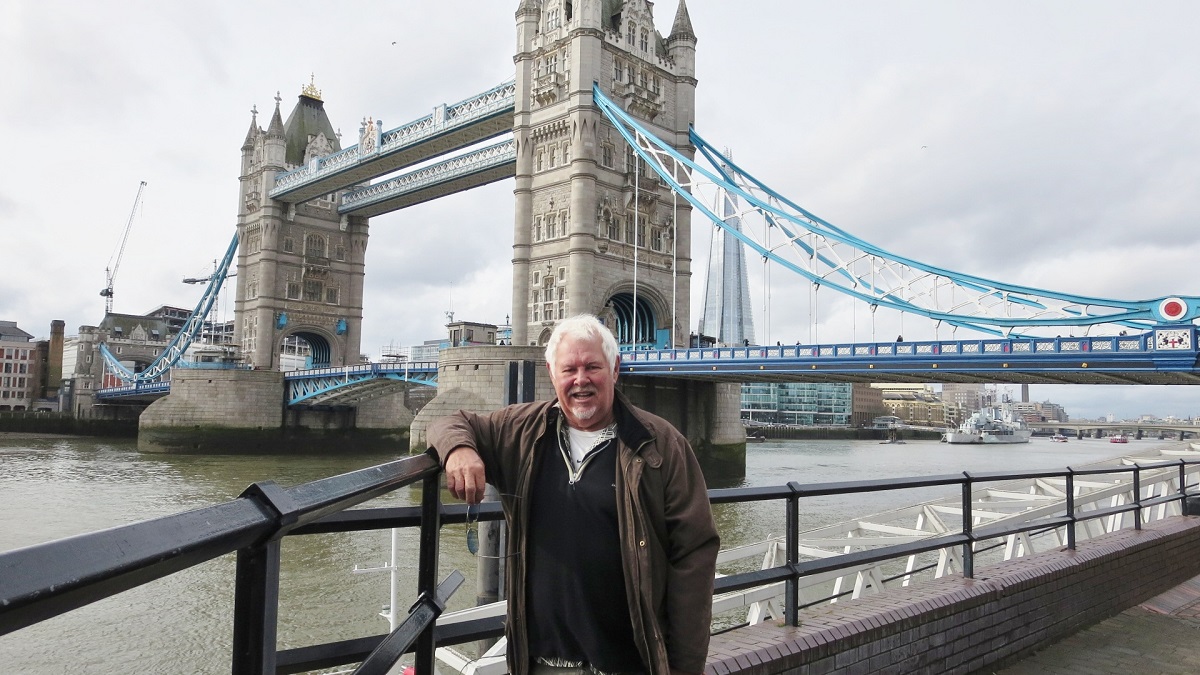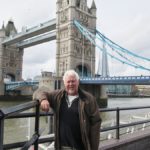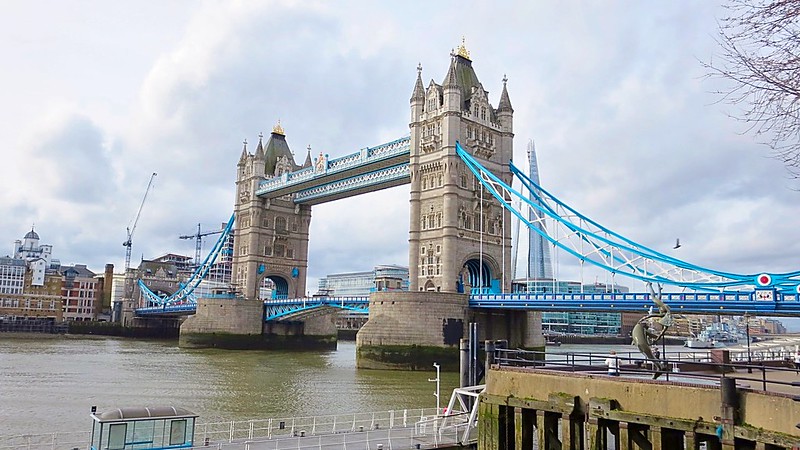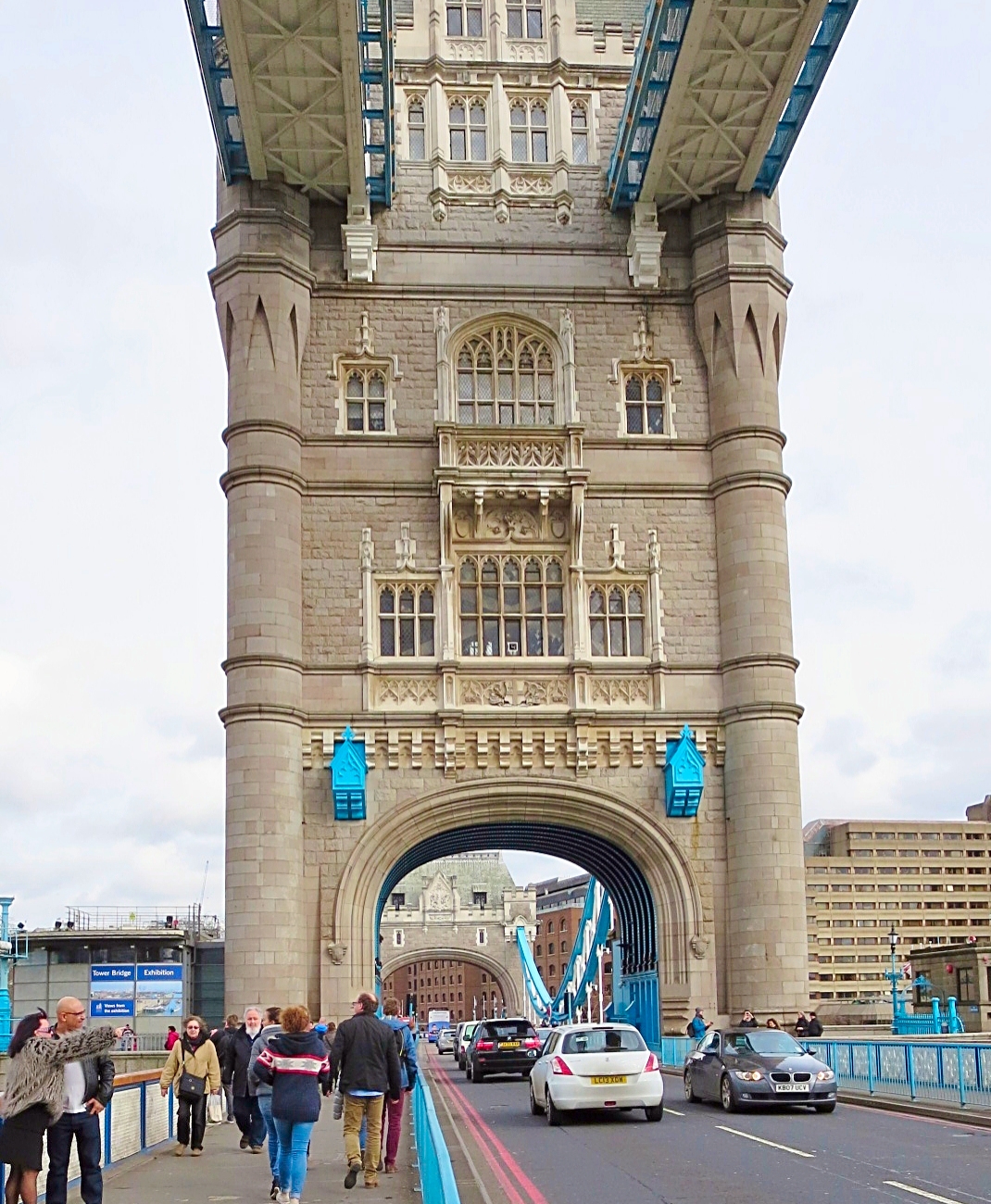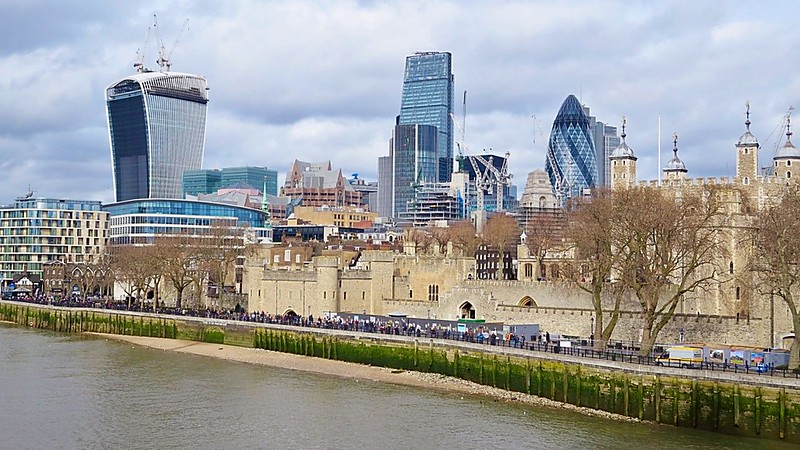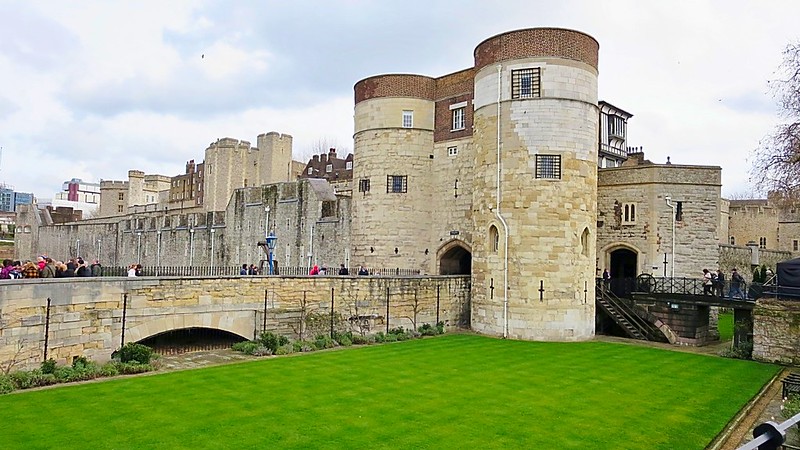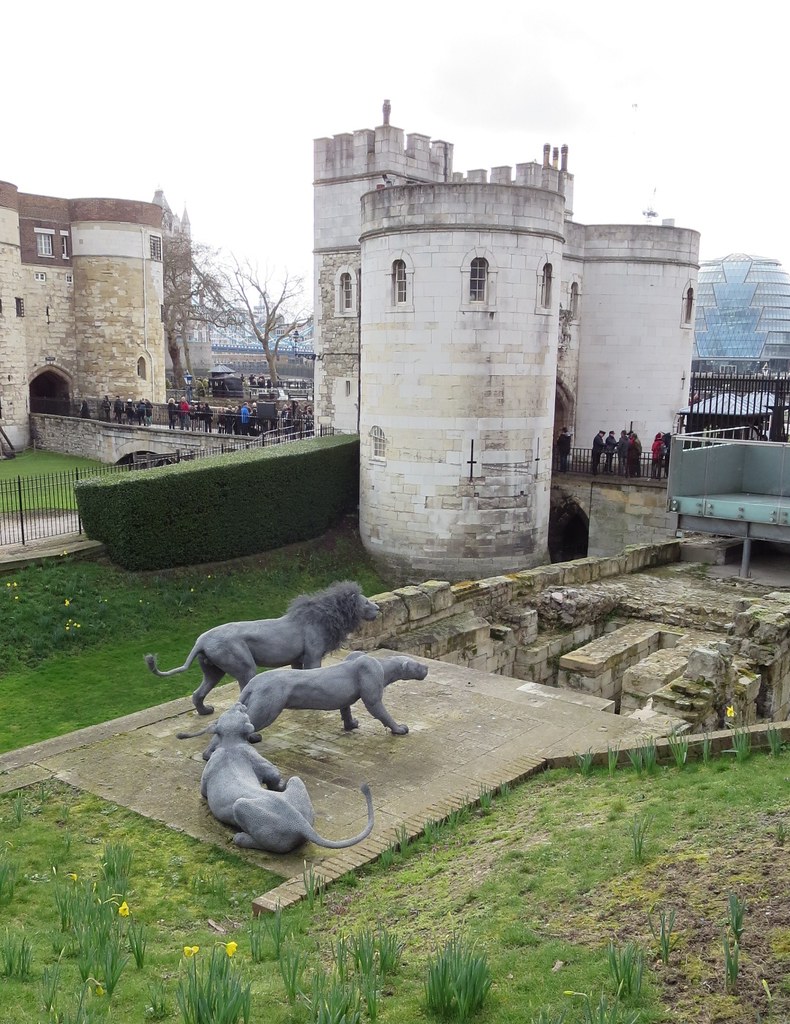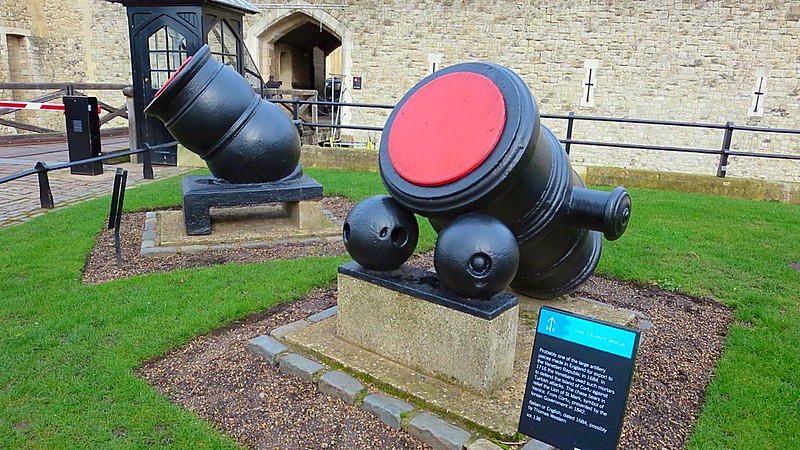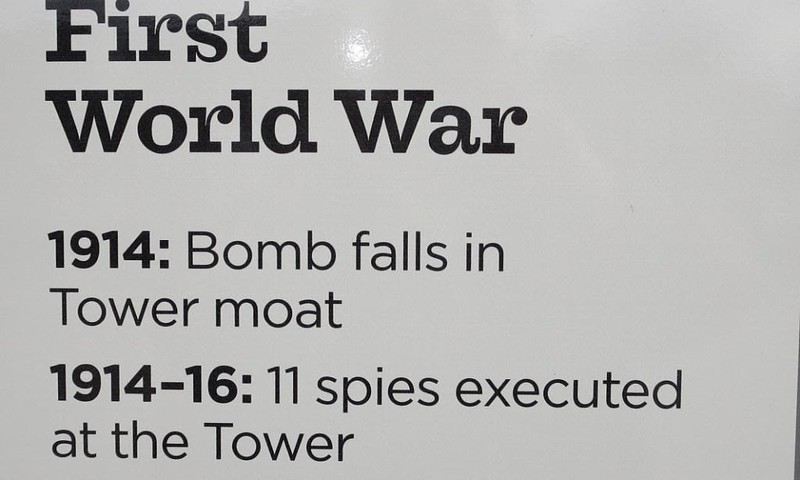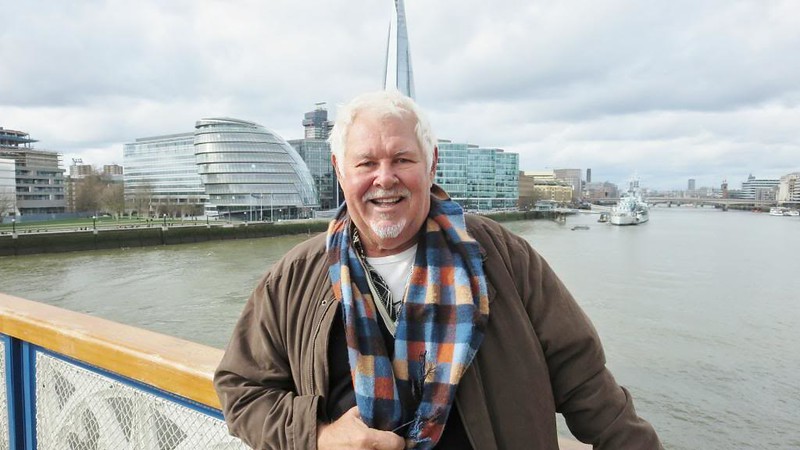Tower Bridge London
Tower Bridge River Thames
Tower Bridge River Thames London is a combined bascule & suspension bridge in London which crosses the River Thames. It is close to the Tower of London, from which it takes its name, and has become an iconic symbol of London.
The Bridge took 8 years, 5 major contractors and 432 construction workers to build. Two massive piers were sunk into the river bed to support the construction and over 11,000 tons of steel provided the framework for the Tower and Walkways. This framework was clad in Cornish granite and Portland stone to protect the underlying steel-work and to give the Bridge a more pleasing appearance.
Tower Bridge River Thames
Certainly it’s the best of all the London bridges.
‘Girl with a Dolphin’
Nice sculpture next to the Tower Bridge
View from the Tower bridge London.
An interesting contrast of structures built centuries apart, the Tower of London with modern glass sky scrapers in the background.
The opposite side of the Thames
Standing approximately 306 meters (1,004 ft) high, the Shard is currently the tallest building in the European Union.
20 Fenchurch Street
20 Fenchurch Street is a commercial skyscraper under construction in London. It takes its name from its address on Fenchurch Street in the City of London financial district and it has been nicknamed The Walkie-Talkie because of its distinctive shape. It is the fifth-tallest building in the City of London.
The Tower of London
The Tower of London right next to the Tower Bridge has played a prominent role in English history. It was besieged several times and controlling it has been important to controlling the country. The Tower has served variously as an armoury, a treasury, a menagerie, the home of the Royal Mint, a public records office, and the home of the Crown Jewels of the United Kingdom. From the early 14th century until the reign of Charles II, a procession would be led from the Tower to Westminster Abbey on the coronation of a monarch. In the absence of the monarch, the Constable of the Tower is in charge of the castle.
Lions at the Tower of London
They were members of the royal “zoo”, which survived for more than 600 years after being founded by King John (1199 to 1216) and the lions are a sign that the UK enjoyed good relations with foreign monarchs, who presented exotic animals as gifts.
18 inch Mortars
The mortar on the left is of Spanish design, and dates from the 18th century. Unusually, both the base and the barrel have been cast as one unit. The calibre of the mortar is 13 inches, which seems to be a common heavy mortar caliber, as preserved British mortars at Crownhill Fort, Plymouth, are similar.
The range of this weapon would be around 3,000 yards, and it is likely to have been used as a fixed installation in a fortification, or at sea in a bomb ketch. These were unwieldy vessels but could produce deadly plunging fire against land targets, such as that provided by bomb ketches of the Royal Navy at both the First Battle of Copenhagen (1801), the Second Battle of Copenhagen (1807) and in many other engagements during the Napoleonic Wars.
When installed in a fortification, because the angle of elevation was fixed, the mortars would be carefully sighted (and sited) so that when a target reached a certain point (at a predetermined distance), the battery would open fire with telling effect, hurling their large, 200 lb, explosive shells at the enemy.
The other mortar is also a cast iron weapon (some older mortars and cannon were cast in bronze). This time the mortar has trunions, which allow the weapon to be elevated, in its carriage, to the required angle to engage attackers. It is of 16″ calibre and bears a maker’s mark ‘TW’; it is an earlier piece, and is dated ’1684′. Interestingly, it resembles Italian weapons of the period and is described as this.
The barrel, however, reveals a cast design of the ‘Lion of St. Mark’, the symbol for Venice and the Venetian Republic. This maritime power and trading giant dominated the eastern half of the Mediterranean Sea (and more) during the 17th century. The mortar came from Corfu, as a gift, and since the Venetian Republic ruled that island from 1401 to 1787, the markings on the weapon make perfect sense.
This mortar was presented to the British Government in 1842, during the Victorian era, at a time when Great Britain still ruled Corfu as a British Protectorate (it did so from 1815-1864). The Lord High Commissioner of the Ionian Islands at this time was James Alexander Stewart-Mackenzie, a noted Scottish diplomat, so it is quite possible that he was behind the gift of the mortar! All in all, these two weapons are fine examples of an ancient form of artillery.
Executions 1914-16
Approximately 7200 people were executed in the tower of London, most of these executions which took place during King Henry VIII rule. Executions depended on the crime with most executions done in public on the Tower Hill but private executions were conducted behind the tower walls. Private executions were considered too politically sensitive to carry out in the open.
Tower Bridge River Thames 1964
Here I am at the Tower of London in 1964. 🙂
Tower Bridge River Thames
Tower Bridge River Thames London is one of the “must see” icons in this great city, for more on London take a look at my Westminster post. If you would like to visit one of the oldest pubs in London which is off the normal tourist track take a taxi to the Prospect of Whitby hotel on the opposite side of the Thames.
More posts for you to see
English restaurants City of Bath Lands End
Pattaya Hilton
This is the view from Horizons the amazing rooftop bar. A great five star hotel located opposite the beach & above the Central Festival shopping mall. Just book through THIS LINK for an excellent room rate.
Europe before Covid-19 & mass immigration.
Counter only started June 16 2020.
